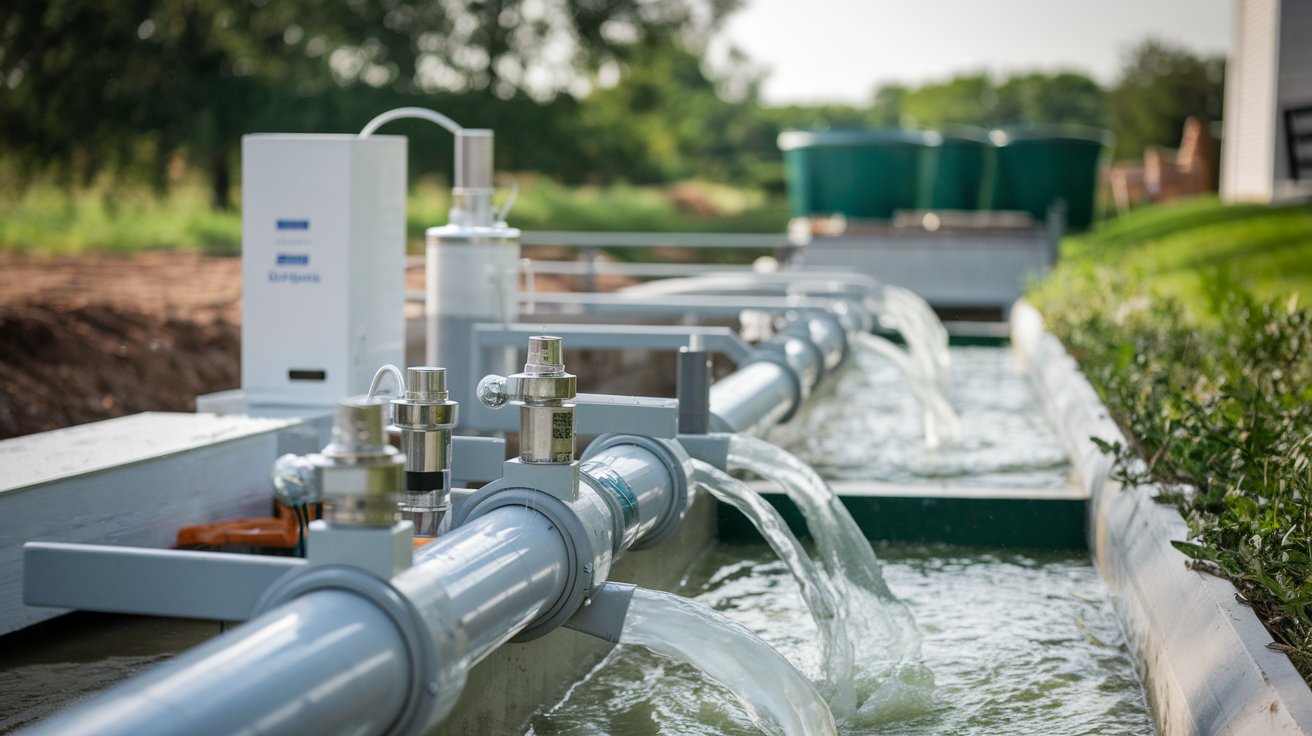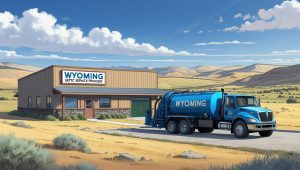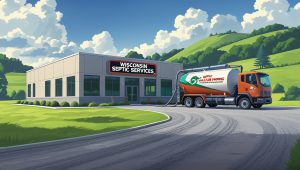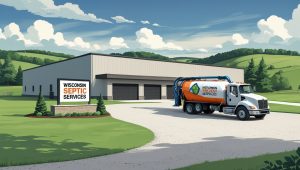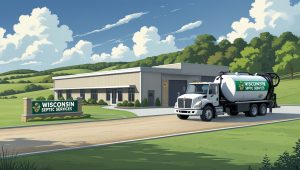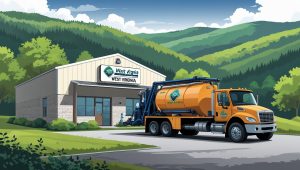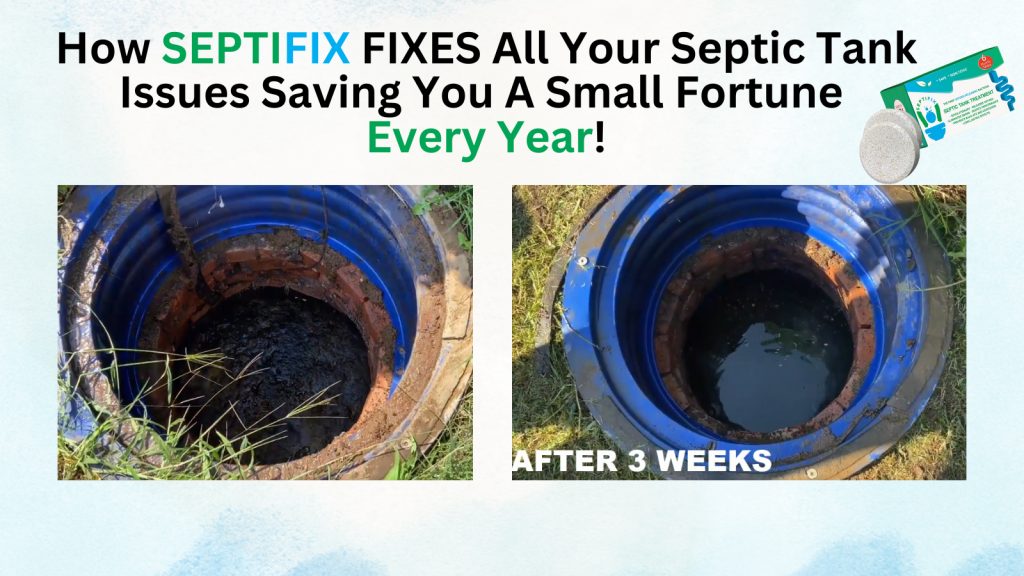Nitrogen pollution in wastewater is a growing environmental concern, contributing to water contamination, algal blooms, and the degradation of ecosystems. Septic systems are often blamed for releasing high levels of nitrogen into the environment. However, recent innovations in septic system technology, specifically designed for nitrogen removal, are offering a solution. In this article, we’ll explore how septic systems with nitrogen removal work, the technologies behind them, and why they are crucial for reducing nitrogen pollution in wastewater. By the end, you’ll understand how these systems contribute to better water quality and a healthier environment.
Table of Contents
- Understanding the Nitrogen Problem in Wastewater
- How Septic Systems with Nitrogen Removal Work
- Types of Septic Systems with Nitrogen Removal
- Benefits of Septic Systems with Nitrogen Removal
- Innovations and Advances in Nitrogen Removal Technology
- The Future of Septic Systems with Nitrogen Removal
- Septifix
- Septic Permit Links by State
Understanding the Nitrogen Problem in Wastewater
Nitrogen pollution is a significant environmental issue that arises primarily from human activities, such as agriculture and wastewater treatment. In septic systems, the nitrogen comes from the breakdown of organic matter, especially from human waste. When these systems are not designed to remove nitrogen effectively, excess nitrogen can leach into the soil and nearby water bodies, leading to harmful effects such as:
- Water contamination: High nitrogen levels can pollute drinking water sources.
- Algal blooms: Nitrogen is a key nutrient for algae, and its overabundance can lead to harmful algal blooms, depleting oxygen levels and harming aquatic life.
- Ecosystem disruption: Excessive nitrogen harms aquatic ecosystems, reducing biodiversity and affecting fish populations.
Traditional septic systems do not adequately remove nitrogen, which makes advanced systems that target nitrogen removal essential for improving water quality and reducing environmental impact.
How Septic Systems with Nitrogen Removal Work
Septic systems are designed to treat wastewater by separating solids from liquids. However, many traditional systems do not address nitrogen contamination. Septic systems with nitrogen removal use advanced technology to filter out nitrogen compounds, preventing them from reaching groundwater and surface waters. Here’s how these systems work:
- Denitrification: This biological process converts nitrates (a nitrogen compound) into nitrogen gas, which harmlessly escapes into the atmosphere.
- Biofilters: These systems use microorganisms to break down nitrogen compounds, filtering wastewater more effectively than traditional systems.
- Advanced Filtration Technologies: Some systems use special filters, such as sand or membrane filters, to remove nitrogen from the wastewater before it is released into the environment.
Types of Septic Systems with Nitrogen Removal
There are several types of septic systems that incorporate nitrogen removal technology. These include:
Denitrification Systems
Denitrification systems are designed to convert nitrates into nitrogen gas through a process known as biological denitrification. This process occurs in an anaerobic environment, where bacteria convert nitrate into nitrogen gas, which then escapes harmlessly into the atmosphere.
Advanced Biofilters
Biofilters use natural microorganisms to break down organic material in wastewater. These systems are effective in removing nitrogen by encouraging microbial growth that helps convert nitrogen compounds into less harmful substances. Advanced biofilters offer more efficiency in treating wastewater than traditional septic systems.
Membrane Bioreactors
Membrane bioreactors (MBRs) use a combination of biological treatment and membrane filtration to remove nitrogen and other contaminants. These systems are particularly effective in areas with stringent wastewater treatment regulations. MBRs help improve the quality of effluent while reducing the impact on the environment.
Sand Filters with Nitrogen Removal Media
These systems use a layer of sand combined with specially designed media to remove nitrogen from wastewater. The media filters out nitrogen, ensuring that only clean effluent is released into the environment. This type of system is often used in rural areas where traditional septic systems are still common.
Benefits of Septic Systems with Nitrogen Removal
Septic systems with nitrogen removal offer numerous benefits, both for homeowners and the environment:
- Environmental Protection: By reducing nitrogen levels in wastewater, these systems help protect local ecosystems, improve water quality, and prevent harmful algal blooms.
- Water Conservation: By improving the quality of effluent, these systems ensure that water resources are used more efficiently and are less likely to be contaminated.
- Sustainability: Nitrogen removal technologies contribute to the sustainability of wastewater management practices by minimizing pollution and improving overall system efficiency.
- Healthier Communities: Lower nitrogen levels in water reduce the risk of waterborne diseases and improve the quality of life for residents in affected areas.
Innovations and Advances in Nitrogen Removal Technology
Recent advancements in septic system technology have made nitrogen removal more effective and accessible. Some notable innovations include:
Recent Advancements in Septic Systems
Innovations such as more efficient denitrification processes, advanced biofilters, and membrane bioreactors are making nitrogen removal more affordable and effective. These systems are becoming more widely available, offering better performance and reduced maintenance compared to older models.
Smart Septic Systems
Smart septic systems are emerging as an innovative solution for optimizing nitrogen removal. These systems use sensors and monitoring technology to track the performance of the septic system and adjust treatment processes as needed. Smart systems ensure that nitrogen removal happens efficiently, even under varying environmental conditions.
Emerging Research in Nitrogen Removal
Ongoing research continues to improve nitrogen removal technologies. New methods are being developed that increase the efficiency of existing systems, making them more effective at removing nitrogen and reducing their environmental impact. This research is helping to pave the way for more sustainable septic system solutions.
The Future of Septic Systems with Nitrogen Removal
The future of septic systems with nitrogen removal is bright, with technology continuing to evolve. As regulations around nitrogen pollution become stricter, the need for these systems will only increase. Septic systems with nitrogen removal will play a crucial role in maintaining water quality, protecting the environment, and ensuring sustainable wastewater management.
In the coming years, we can expect more widespread adoption of advanced septic systems, particularly in areas where nitrogen pollution is a significant concern. These systems will not only help meet regulatory requirements but also contribute to a cleaner and healthier environment for future generations.
Conclusion
Septic systems with nitrogen removal are a vital innovation in the fight against nitrogen pollution. These systems reduce the environmental impact of wastewater, protect water quality, and contribute to sustainable water management practices. With ongoing advancements in technology, these systems are becoming more efficient and accessible, helping communities and ecosystems thrive.
Septic Tanks in Rural Areas: A Practical Guide for Homeowners
Directory | Wyoming Septic Service Providers : Best Professionals
Directory | Wisconsin Septic Service Providers | Part 3
Directory | Wisconsin Septic Service Providers | Part 2
Directory | Wisconsin Septic Service Providers | Part 1
Directory | West Virginia Septic Service Providers : Best Professionals
Winter Pumping: Should You or Shouldn’t You?
Septic Installer Registration in Bay County, Michigan
Septifix

